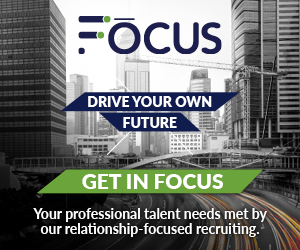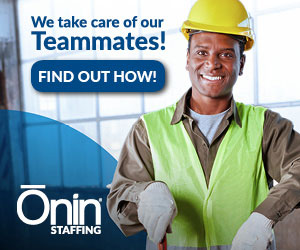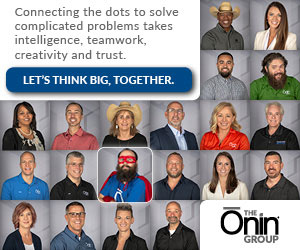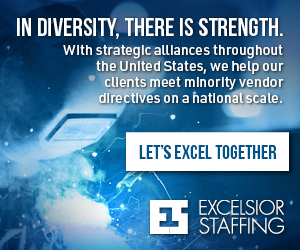I had no gig and needed some money, so I pulled my hair into a ponytail, put on a suit and applied for a job at Kelly Services in Appleton, Wisconsin. I’ll never forget them putting me in a room to test me on that dexterity box they use. I get why they use it — and I think we have used something similar — but I remember feeling like a big, dumb chimp in a suit trying to get a biscuit from a researcher. I did get a biscuit – a $7.00 an hour job putting NBA stickers on boxes of trading cards.
In my early 20s, I supplemented my inconsistent musician’s income with temp work from at least three large staffing companies. While I am thankful for the staffing model and the opportunity it gave me to work intermittently, the experience was not great with any of them.
There were a handful of really nice recruiters whom I worked with over the years, but institutionally, the industry made me feel like a commodity — a worker chimp or a piece of meat.
I chuckle when I think about the career I have had in staffing and the value I could have brought to any of these companies had someone taken the time to look at me as anything more than a warm body for an opening.
Then the smile fades as I think about all the talent Ōnin must have passed over in the same manner. Because of the sheer numbers of our business and the tight margins we operate in, light industrial staffing is, by nature, a blunt instrument. I am a realist about this, but I also have an idealist side that is simply not satisfied with people feeling less than human when they work with Ōnin.
People are Not a Commodity
You can find, as I did, great recruiters in almost any organization. The problem is, institutionally, the vast majority of staffing companies are structured based on the mindset that the “temps” are a commodity.
The question for staffing executives is, what are we doing to create business practices, systems and processes that create an environment where people are treated like valuable human beings when they walk into our offices?
What message does it send to do away with vacation and holiday pay? How are we approaching insurance and the ACA requirements? How are we perceived when we choose the crummiest, broker-fee laden, minimum essential coverage plan we can find because it is the cheapest possible option? Does our team feel so beat down with metrics and money-grubbing policies that, even if they had the heart to serve in the beginning, there is nothing left of themselves to give to our workforce?
I am a red-blooded capitalist, and I get that these decisions affect the bottom line. However, we can have a healthy net income without selling our souls. Shame on us if winning on price alone or growth through leveraged acquisition has forced us into a situation where margins are so thin that, to be profitable, we must squeeze the $12.00 per hour warehouse worker.
If you are a consumer of staffing services, you need to understand the impact of these practices as well. Like it or not, your employment brand is entangled with the staffing service which supports you.
How are their practices affecting your brand? Do you want the contingent laborers working alongside your team feeling like a commodity?
We are operating in the most competitive employment market in recent history. Workers have choices today, and the companies who treat people right are winning the war for talent — period.
The Impact of User Experience in Staffing
I realize that I have one leg in the stirrup of a high horse here, so let me put both of my feet back on the ground. Ōnin is nowhere near perfect.
Last year, we mystery-shopped each of our 95+ branches. Let me tell you, that was a scary exercise. There were mystery-shopper experiences which were quite fantastic and made us very proud, but we also uncovered plenty of situations where there was a disconnect between our company vision and reality.
Let me just say — if you are reading this and you have experienced anything less than service-excellence from Ōnin – I am sorry.
An eye-opening statistic came out of this mystery-shopper exercise. We scored branches in several categories and then on a 1-10 scale overall. The branches which had an overall score of nine or 10 had an average annual growth rate of 25%. The branches which scored a four or lower had an average annual growth rate of -17%.
Instinctively, we knew better service to the workforce would translate into better recruiting and retention, thus resulting in revenue and hours growth, but a 42% growth difference between the best and worst branch experiences is astonishing.
This is hard evidence that better service to the applicants translates into better recruiting and retention results, which obviously directly impacts our ability to come through for our clients.
In the staffing industry, the road to performance runs right through the heart of the user experience.
If our clients want to meet production and we want sustainable organic growth, then we must work together to be a legitimate employer of choice in every market at each work site.
Win or Lose?
The tight recruiting market has been hard on many US companies. Finding qualified talent has been the biggest barrier to growth in the staffing business over the last two years. Today more than ever, progressive organizations are looking closely at their employment brand and hiring practices, and corporate America is better for it.
As a staffing company facing these realities head-on, we are finding that it is better for us to gracefully walk away from clients who are unwilling to partner with us to wrestle with these issues. The workforce has countless options and they are moving to companies which value them. I can honestly say since our founding, treating people the right way has been a core principle and The Ōnin Group is determined to be a leader in this employment brand movement.
Most staffing industry leaders just don’t get it because the people business of staffing is ironically short on people-people. Your employment brand is inexorably entwined with the staffing service which supports you — potential employees don’t understand the legal distinction.
What kind of impact is your staffing provider having on your reputation as an employer? Is your current staffing arrangement enhancing your relationship with the community or hurting it?
Consumers of staffing services will lose if they are partnered with a staffing company who treats people like a commodity. There is a better way — let’s win this together: #JoinTheMove.

Jim Weaver
The Onin Group






